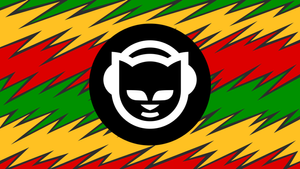Streaming service Napster last week urged a judge to dismiss a lawsuit filed against it by a British photographer over a photo of reggae artist Sugar Minott. The photographer, Adrian Boot, claims that Napster infringed his copyright by using the photo without licence. However, Napster counters that it had a licence to use the photo via the record label that provided the recording it accompanied.
Indeed, Napster argues, so clear is that fact that Boot should cover its legal costs because, "to investigate and refute Mr Boot’s claim required Napster to dig through reams of distribution agreements and trace the chain of a single photograph over the course of decades". And "this herculean and burdensome task" revealed "nothing more than what Mr Boot had known all along: he had already been paid for a licence to use his photographs on Mr Minott’s album".
The case raises some interesting questions about the way record labels license images from photographers to use in artwork and release marketing. Do labels always have the necessary rights to then allow digital platforms to use the photos? To what extent are agreements between labels and photographers properly formalised? And what are the liabilities of the digital platforms if all the necessary rights haven't been properly secured higher up the supply chain?
The photo of Minott at the centre of this dispute was taken in 1979. In 2005, Soul Jazz Records then licensed the image for use in the artwork of the album release 'Sugar Minott At Studio One'. That album was subsequently delivered to Napster, with the artwork including the photograph, by the label's distributor PIAS.
Boot says that he then discovered in 2022 that Napster was using his photograph alongside Minott's tracks on the digital music platform.
He insists that his agreement with Soul Jazz Records was restricted to the specific use of his photo on the cover of the 'Sugar Minott At Studio One' album, and that any other use of the image needed to be licensed via his company Urbanimage.
In the screen grabs provided by Boot, Napster was using a cropped portion of his photo of Minott, so that it didn't appear within the album's artwork.
In its defence, Napster refers to both Boot's agreement with Soul Jazz Records and its agreement with PIAS. The label's licence to use the photo on its album artwork, it says, "implied a non-exclusive licence to distribute the photograph along with the album”. It’s common practice, it argues, for labels to distribute any licensed photos along with a release.
It's agreement with PIAS, it then adds, grants it permission “to distribute, post, transmit, download, store, reproduce, display and exhibit each track’s corresponding artwork", and also includes "an additional catchall to include all 'other copyrightable works' provided by PIAS".
Boot is seeking statutory damages under US copyright law in the region of $15,000. Napster also disputes that claim, because to qualify for statutory damages a work must be registered with the US Copyright Office. Boot only did that in 2018, by which point the photo was already on Napster's platform, meaning the alleged infringement had already occurred.
However, Boot argues that the copyright infringement continued after 2018, and therefore his claim for statutory damages is valid.
Both sides set out their respective arguments in a court in Seattle on Friday. We now await a judgement. If the judge sides with Boot, it could set a precedent that would require labels and their digital partners to double check exactly what rights were secured from photographers when images were licensed for use on artwork.

